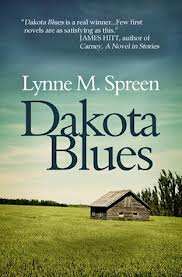 Lately I have come upon a number of mystery stories set in New Orleans, and have enjoyed them all. Maybe because New Orleans has a mysterious aura about it due to the voodoo religion prevalent there, and the Cajun speech.
Lately I have come upon a number of mystery stories set in New Orleans, and have enjoyed them all. Maybe because New Orleans has a mysterious aura about it due to the voodoo religion prevalent there, and the Cajun speech.
This book is set in backwater Cajun country of Louisiana outside of New Orleans. It has colorful characters, and a whole bunch of spookiness. Well, of course it does. It is a paranormal story, the first in the Dark trilogy. (Why is every new book these days part of a series? Oh, well, moving right along ….)
The writing is clear and simple, which made me think it might be a YA, but since the protagonist is an adult, I figured it was not.
Here’s the basic plot: Leigh Benoit is called home to Louisiana by her grandmother to take care of her orphaned niece, Lyla. Deep in the mysterious waterways of Cajun Country lies the secret of a Dark force that threatens Leigh’s family. Leigh, with the help of her childhood friend, Detective Lucas Castille, must uncover the secret, or the darkness will prevail.
The death of her own mother years ago was not as it seemed, and the deaths of her brother and sister-in-law in a strange car accident in which they were both killed but their 10 year old daughter was not, was mysterious, and ugly. Lucas reveals that there have been some other unexplainable deaths in the area over the last couple of years. Lots of them, actually.
Let me warn you in advance. The story also revolves around Charlemagne and his 12 holy knights, and their ‘bloodline’. The knights supposedly had superpowers, one per knight: strength, seeing the future, healing, magic, etc. These powers have survived down the bloodline to the present day ‘paladins’, which are supposed to be warriors of the church, but the “warriors of God” is a 18th century romanticisation, and refers to the medieval interpretation of the Roman palace guard and priest of Mars. Needless to say, some of our characters are paladins. OK, so if you can suspend disbelief to go along with this plotline, you are good to enjoy the rest of the story.
My two small and petty criticisms: one is the ongoing recounting of dreams throughout the book. Amazing how they are remembered in total and vivid detail. Most dreams fade almost instantaneously for us real life folks, and even strong ones don’t last in their entirety. So the reader (that would be me) asks herself if these dreams are there for padding or some kind of attempt at making the story spookier with foreshadowing? Anyway, I hate dream recounting in books. I don’t let people tell me their dreams in real life. After all, who cares? They are made up scenarios by the brain. They have no impact on our lives.
The word peaked: “my curiosity was thoroughly peaked”. Sigh. Piqued, people, PIQUED! Maybe the author really did know this difference but spell checker let it through because ‘peaked’ is a legitimate word. I’m awarding the benefit of the doubt for this one time only. Don’t let it happen again.
OK, three criticisms. I thought the symbolisms which were there to create the spooky and scary atmosphere were a little heavy handed. This is one of the reasons I thought it might be a YA.
On the plus side, not ONCE did the author use the word palpable. I admire the restraint, as it seems that every damn book, whether fiction or non-fiction, has that word in it. And used incorrectly at that in most instances. Note to authors: find another way to express the idea of almost ‘tangible’, because most of you mean ALMOST tangible, the idea you are trying to describe cannot not actually be touched. Sigh.
Now you might think from all of this that I did not enjoy the book, but you would be wrong. I did enjoy it. It was a fun read, surely not of the Stephen King scary quality, but interesting nonetheless. After all, I did learn something new, that being the paladins of Charlemagne.
Time to go search out some lunch….. while keeping a wary eye out for white doves, black crows, and old men with white beards. [Insert eerie music here.]
 This is one of a series touted as: The Manhattan Mysteries: Hard Boiled New York City Fiction. I didn’t find it all that hard boiled; more on the easy over side, but still a great story nonetheless.
This is one of a series touted as: The Manhattan Mysteries: Hard Boiled New York City Fiction. I didn’t find it all that hard boiled; more on the easy over side, but still a great story nonetheless.







